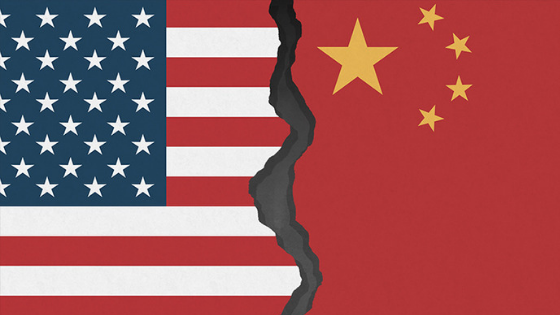Editor’s note: Curtis Ellis clearly lays out why the China trade issue is not a mere commercial dispute.
Why exactly did progress toward a U.S.-China trade deal apparently slow down, and President Donald Trump finally enact his promised 25 percent tariff on 200 billion dollars in Chinese goods? What will the effects of this be on the U.S.-China trade war, and can the Chinese Communist Party be trusted to live up to any deal at all?
Jan Jekielek: Yesterday, there were a lot of headlines around these new tariffs that are coming into effect: 25 percent on some $200 billion worth of Chinese goods. In retaliation to the Chinese Communist Party—renegotiating the deal or trying to renegotiate, so many points. What do you make of all this?
Curtis Ellis: Well, we have to remember the history of all this. The immediate history is these 25 percent tariffs were supposed to go into effect Jan. 1. It’s long been scheduled. Last year, President Trump placed 10 percent tariffs on a range of Chinese goods, which we had found were being illegally subsidized, dumped in the United States at below market value—below the cost of production in order to deliberately drive out the competition. Undersell the competition, drive them into bankruptcy, grab market share [like] John D. Rockefeller did with the Standard Oil Trust at the turn of the last century. The Chinese are trying to do it across a range of industries. So the Commerce Department determined after a lengthy investigation that this is exactly what’s been going on. And we would put a 10 percent tariff on these illegally subsidized dumped products. That 10 percent tariff was supposed to increase to 25 percent on Jan. 1.
But President Xi Jinping said: Well, let’s negotiate about this. So we sat down and started talking with the Chinese, and we postponed that 25 percent increase ’til March 1. March 1 talks are making good progress. We postponed that increase previously scheduled, postponed it again. Well, as of this past week, we learn that all that good progress the Chinese have reverted to form. I should say the Chinese Communist Party has reverted to form—making promises and then backtracking, making commitments and then reneging on the commitments they made. Which, again, you look at the history—they made a number of commitments when they were admitted into the World Trade Organization 20 years ago [in] 2000. They never lived up to any of those commitments. So after 20 years of reneged commitments and broken promises, and after three to four months of the latest installment of broken promises, President Trump said: Enough is enough, and we will now have the 10 percent tariffs increase to 25 percent.
And he said: We’re going to look at another $325 billion dollars worth of goods imported from China that currently have no tariffs on them, and maybe we’ll put 25 percent tariffs on those too. You have to remember that it’s only after we put tariffs on these Chinese goods that China even sat down and started talking about anything. Previous administrations would have high-level dialogue and commitments and take the Chinese Communist Party leaders at their word that they were going to do something, and they never did.
Mr. Jekielek: So one of these items that they’re reneging on is lifting these forced technology transfer requirements. Can you speak to that a little bit?
Mr. Ellis: The Chinese Communist Party is engaged in wholesale economic aggression against the United States. This is something that’s often lost in a lot of the discussion you see in the corporate media. They think this is some type of commercial dispute. There’s a bigger picture, which we will get to.
But there are at least seven forms of direct aggression that these tariffs are in place to address. You have the cyber espionage [by] the People’s Liberation Army of the People’s Republic of China. It’s been systematically hacking into government computers, industrial computers—our industry, our companies—and our military computers, grabbing personal information on millions of Americans, trade secrets, and military secrets. What they can’t steal, they put a metaphorical gun to the head of American businesses and say: As the price of doing business in China, you have to hand over your blueprints and your trade secrets. You’ll form a joint venture with the majority Chinese owner—a partner, majority owned by the Chinese partner—and you will give this joint venture all of your blueprints and plans and technology. And American businessmen naively think this is a good idea…
Read the full interview here.













